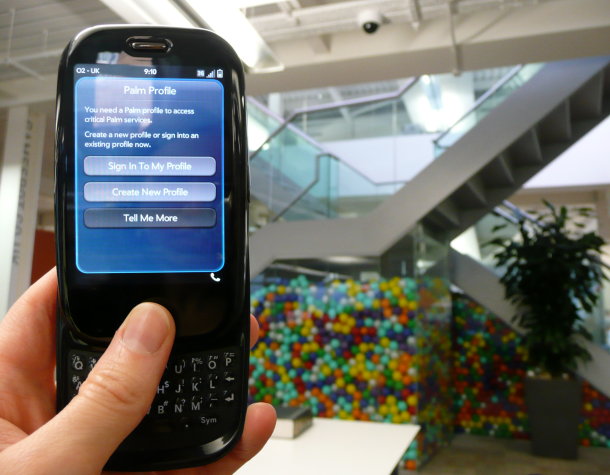HP hands over $1.2bn for Palm: Next stop, tablets?

Armed with webOS, HP has its eye on new devices
HP is to buy smartphone maker Palm in a deal worth around $1.2bn.
The acquisition, announced on Wednesday, will cost HP $5.70 per share in a move that analysts predict could see the tech giant one day launch a rival to Apple's iPad.
Palm, which makes the Pre smartphone and webOS mobile operating system, has been rumoured to be in the market for a buyer for several months, after struggling to gain significant momentum in the smartphone market.
Last year, the company's webOS attracted just 0.7 per cent share of the worldwide smartphone market, compared to Google Android's 3.9 per cent and 14.4 per cent for Apple's iPhone OS, according to analyst house Gartner.
Competition in the smartphone space has ramped up significantly in recent years, with established mobile makers such as BlackBerry and Nokia upping their efforts against the relative new kids on the block such as iPhone and Android. In this crowded marketplace Palm has struggled to make itself heard - despite gaining favourable reviews for its Pre handset and open source webOS.

The Palm Pre smartphone impressed reviewers but failed to gain significant marketshare
(Photo credit: Natasha Lomas/silicon.com)
Carolina Milanesi, Gartner research vice president, said Palm has struggled to make an impact in limited and crowded marketplaces after retrenching back to the US and a few European countries.
"If you look at the... lack of [success] that Palm has had with the Pre and the Pixi, I think it has more to do with the limitations from the finance side that Palm had to deal with and not necessarily lack of interest from the operators for an alternative to Android," she told silicon.com. "It was a vicious circle because if the sales didn't go up, developers would not be interested in the OS and then it would be less attractive to the operators because of lack of ecosystem."
Milanesi said Palm nevertheless has several assets HP clearly wants to get its hands on. "I definitely see webOS, I see the IP portfolio and I see the expertise Palm has around developer communities as being the three assets they're after," she said. "And I think, depending on the markets, the [Palm] brand as well."
According to HP, the acquisition will improve its ability to "participate more aggressively in the fast-growing, highly profitable smartphone and connected mobile device markets" - suggesting webOS-powered tablets or netbooks might well be on the cards.
"Palm's innovative operating system provides an ideal platform to expand HP's mobility strategy and create a unique HP experience spanning multiple mobile connected devices," HP's Todd Bradley, executive VP of its Personal Systems Group, said in a statement.
Milanesi said a webOS-powered tablet or netbook is "the most natural place" for HP to start makings its purchase work while Dave McQueen, principal analyst at Informa Telecoms and Media, also believes other device types are on HP's mind with the Palm buy, over and above the traditional smartphone.
"It appears that HP intends to use webOS in other device types, much as Apple has extended iPhone OS X to the iPad," he said in a statement.
While it probably makes sense for HP to continue using Palm's brand in the smartphone space, Gartner's Milanesi said it may well choose to badge a webOS tablet or netbook as HP hardware - since its own brand is likely to carry more clout there.
"What we don't know yet is what [HP is] going to do," she added. "Are they going to integrate Palm? Is Palm going to run separately? Are they going to try and use also the expertise that Palm has in Microsoft to maybe revamp their iPaq line? There's a lot of questions and probably not all of them have been even figured out by HP itself."
The acquisition is subject to customary closing conditions, regulatory approvals and the approval of Palm's shareholders. The transaction is expected to close during HP's third fiscal quarter, ending 31 July.